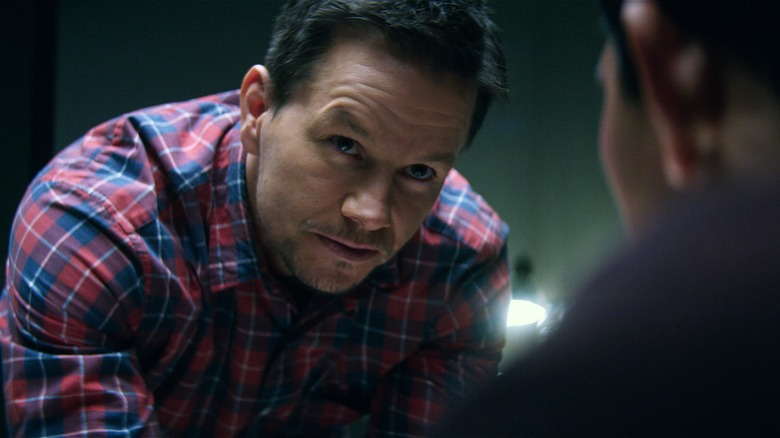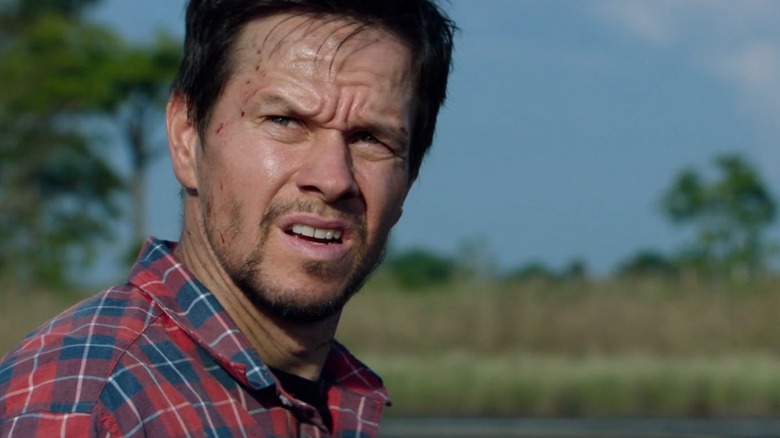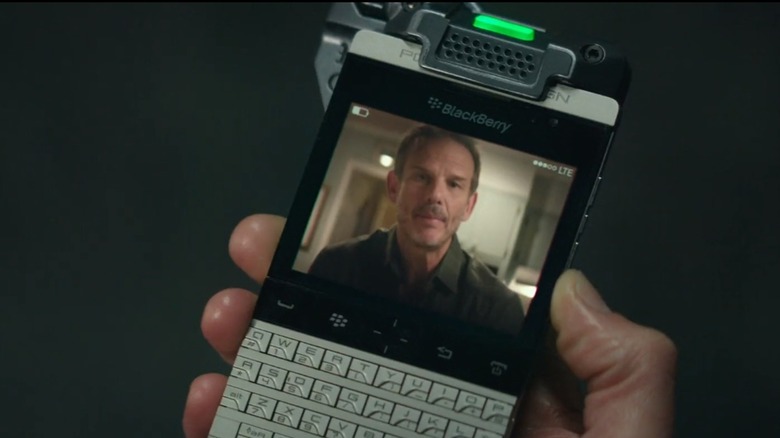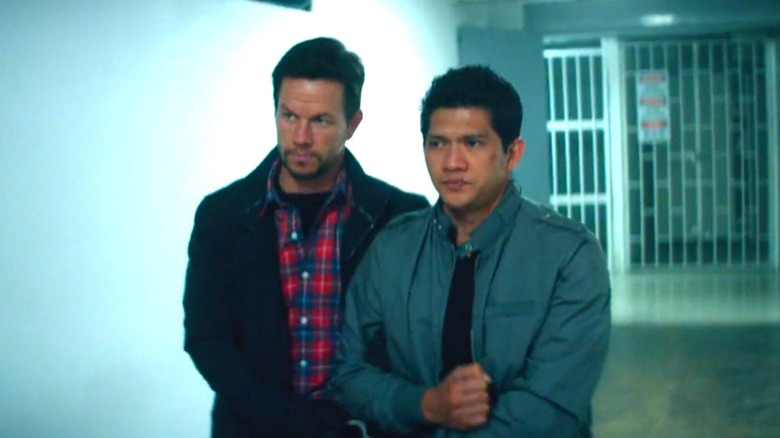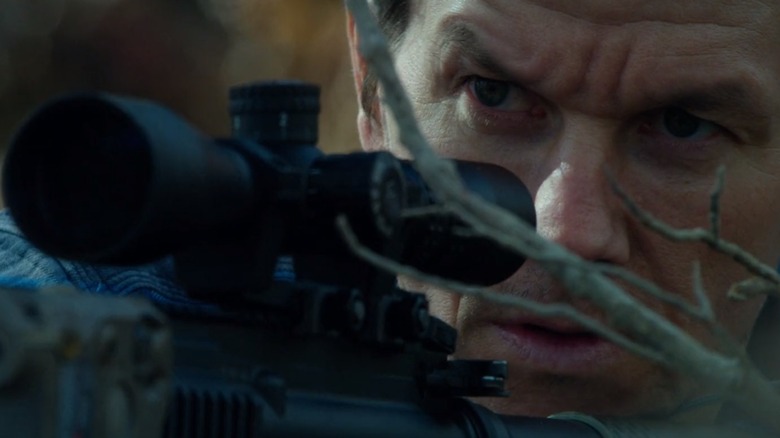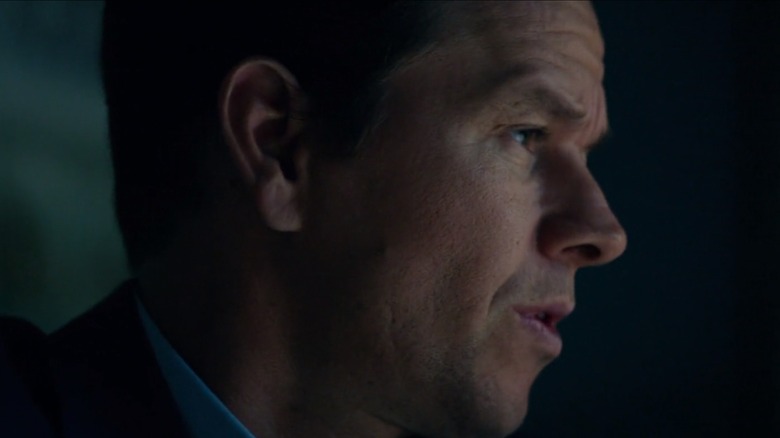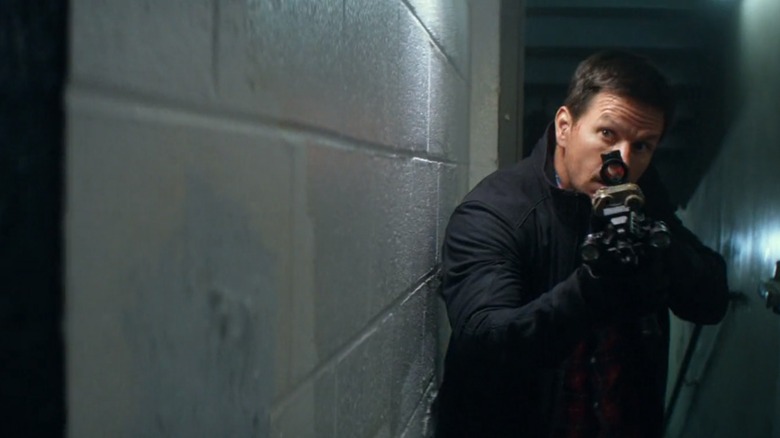Mile 22 Sequel - Will It Ever Happen?
At times, a movie's success can be hindered simply by the era of its release. In 2018, Mark Wahlberg and Peter Berg embarked on their fourth collaboration in a mere five years. Their films are typically infused with intense military idealization, with Wahlberg apparently seeing Berg as the director who can help him follow in the footsteps of action legends like Bruce Willis and Sylvester Stallone. Wahlberg cleverly seized the chance to fill the void of a genuine action hero amid the prevailing dominance of comic book movies in his peers' filmographies.
However, "Mile 22," their latest movie, took a different route. Instead of another biographical military piece, it delved into a fictional military narrative, poised to launch a fresh franchise with Wahlberg at its forefront. Yet many critics viewed this as doubling down on a genre that hasn't fully resonated with the broader public. The outcome? Modest box office results and negative reviews from critics.
Nonetheless, a renewed interest emerged when the dust settled and "Mile 22" landed on Netflix in late 2020. The movie, adhering to classic action movie tropes, found its niche on the Netflix homepage, which lowered the stakes for its success. This shift sparked curiosity among fans about the absence of a sequel. So let's delve deep into the progress of a potential follow-up to "Mile 22."
Why isn't the sequel of Mile 22 happening yet?
The short answer to why there hasn't been a sequel is the COVID-19 pandemic. But there's more to it than just that. While multiple reports have indicated that the movie was pushed back because of the pandemic, STX Entertainment — its production company — never actually confirmed that. And it's very unlikely that they'll ever announce that they've canceled the sequel.
That being said, some clues suggest that may be true. STX Entertainment is relatively new to Hollywood, and they planned to make mid-budget movies with stars attached. For "Mile 22," that fell in line with their game plan. However, the pandemic wreaked havoc on production costs, as COVID-19 restrictions caused expenditures to skyrocket. STX Entertainment is far too young a company to be able to absorb the rising costs of shooting in that era.
Unlike production companies, STX Entertainment didn't engage in the delicate balancing act of making films during the pandemic, shelving projects featuring guaranteed bankable stars like Kevin Hart. Nevertheless, "Mile 22" aimed to kick-start a franchise for the company. Now, with the pandemic receding, the stage seems set for a sequel to take off.
What Peter Berg had to say about the sequel
In today's Hollywood landscape, crafting a franchise has become the dominant strategy. Beyond securing consistent revenue from devoted fans, it affords the latitude to thoroughly explore characters and their universes — something constrained by a single standalone film's brevity. This narrative expansiveness and opportunity for creative gratification has enticed figures like Peter Berg and Mark Wahlberg towards ventures like "Mile 22."
Initially, the duo turned down involvement in the project when it existed as a modest paramilitary thriller. However, STX Entertainment's grander vision reshaped its perspective. Berg vividly explained in an interview with EW, "I really hadn't thought about it and I talked to Mark about it ... It kind of checked that box of not being another true story. He had a slot open and there's no one I want to work with more. I was kind of hooked on the story, which I was involved in creating. The goal was originally Iko. Mark had seen The Raid, so he knew of Iko and he was into the idea of it too. We both liked having this action franchise in theory, having Iko, and not having to tell a true story."
What could be explored in the sequel?
Fans can never truly predict the exact direction of a sequel, but the clues often lie in analyzing what worked in the original. One of the standout elements of "Mile 22" was undoubtedly its villain. Iko Uwais portrayed Li Noor, who served as Alice Kerr's (Lauren Cohan) informant in the fictional Asian country of Indocarr. Uwais was cast due to his impressive and career-defining role as the lead in "The Raid." Whenever Noor found himself in situations requiring him to fight his way out, the entire movie came to life. Given the significant deaths of major characters in "Mile 22," fans should consider themselves fortunate that Noor becomes entangled in a Russian conspiracy and manages to outsmart James Silva (Mark Wahlberg).
If a sequel were to be made, the most logical direction would likely involve James Silva's pursuit of Noor. Even critics of the film acknowledged Noor's impactful performance as the original's strong point, making it sensible for the sequel to delve further into his character. Moreover, the outcome of Noor's actions, particularly his potential involvement in Alice's death, remains ambiguous.
In the final scenes, James Silva is shown briefing the CIA about Noor's betrayal, hinting that he might have the CIA's full support. Considering Noor's connections with the Russian forces, the stakes would likely be even higher in the next installment. The sequel could also take its time to expand Silva's world, providing glimpses of the franchise's future potential.
What stars would reappear in the sequel?
"Mile 22" featured an unsurprisingly star-studded cast. While STX Entertainment prefers to center a movie around a single star, Mark Wahlberg wields an unusually strong celebrity pull — just check out "Entourage" for proof. The movie already includes stars like Lauren Cohan, John Malkovich, and Ronda Rousey, and it's only natural to anticipate that they will be succeeded by equally prominent figures.
Lauren Cohan is certainly returning, because her character's arc was a bit too ambiguous for a film that assigned heroic deaths to all its major players. Mark Wahlberg, given his role as both the main star and the producer, obviously won't join the list of stars replaced in a franchise sequel.
It's also worth mentioning that Peter Berg gave himself a small role as the ex-husband of Lauren Cohan's character, Alice Kerr. It could be intriguing if he returns and they maintain his character's minor role throughout the franchise, similar to what was done with Tony Stark's best friend Happy (Jon Favreau) in the MCU. With Iko Uwais, Lauren Cohan, and Mark Wahlberg likely returning based on story hints, fans also likely hope for John Malkovich's reappearance. Malkovich's underuse in "Mile 22" hints at potential in future installments. His presence could emulate a Nick Fury-like role, which would definitely enhance the franchise's appeal.
The original script was tweaked to allow the possibility of a sequel
While there are certainly similarities between "Mile 22" and the earlier collaborations between Berg and Wahlberg, the two felt that this marked a brand new horizon because, unlike their previous work, it was not based on real life. This allowed them to experiment more with the script, which they certainly did. An earlier draft of the script featured only Ronda Rousey and Iko Uwais as the main characters. Mark Wahlberg was added to the cast when the initial idea of a lower-budget action movie seemed too small-scale.
The selling point for Mark Wahlberg was his portrayal of a villain for the first time since his 1990s thriller "Fear." However, they soon realized that building a franchise around a villain could be quite challenging. They then had first-time screenwriter Lea Carpenter rework the ending and remove the final act twist that revealed James Silva as the true villain.
Interestingly enough, it's the final act that critics had the most issues with, some even going so far as to suggest that there wasn't any final act at all. Fans typically prefer movies with a conclusive and gratifying ending, but sometimes, as seen with "Mile 22," the movie creators take risks and leave audiences hanging. Hopefully, the narrative sacrifice they made will pay off in the sequel.
Umair Aleem was hired to write the script for the sequel
Before the first movie even concluded, a writer for the sequel had already been hired, underscoring the studio's commitment to developing the franchise. Just like they did with "Mile 22," the studio opted for a relatively new screenwriter, with Umair Aleem selected to pen the sequel.
Although Aleem hasn't yet delivered a movie that resonated strongly with audiences, his most recognized work to date is the Netflix original "Kate," which received a mixed critical reception. Aside from that, Aleem has been associated with just one other action movie, while much of his other work remains in development, making it challenging to know his voice.
However, it's noteworthy that Aleem has previously written a CIA-centered movie where familial dynamics play a role in the life of the agent, titled "Extraction." Similarly, Lea Carpenter, the author of "Mile 22," has a background in the genre, evident in her highly acclaimed book "Eleven Days." This book not only explored modern warfare but also delved into how it impacted the families of agents and soldiers back home. Carpenter carried this thematic element into her writing of "Mile 22." Therefore, considering the final dialogue between Li Noor and James Silva, where Li Noor says, "Say hello to your mother for me," it's likely that the sequel will continue to delve into the family dynamics of these individuals in dangerous professions.
The producers had a very ambitious plan for the franchise
Whereas Mark Wahlberg's ambition was simply to have a franchise that he could always go back to, the studio's plan was even bigger than that. It's not just the plan to make another movie continuing the story of James Silva where "Mile 22" left off — they want to grow the franchise to include different platforms like VR, video games, and television shows.
That was hinted at in "Mile 22," as the information presented about Overwatch felt as though it was barely scratching the surface. The story held the potential to venture in different directions, including prequels and the introduction of varied characters who could carry their own installments of the franchise. This direction isn't surprising, as even though established franchises like "Harry Potter," the "MCU," and "Lord of the Rings" are commonly associated with movies, they've successfully expanded to encompass nearly every entertainment platform. It's reasonable that STX would aspire to build a comparably multi-faceted franchise.
But as it's been five years since "Mile 22" came out, it's quite possible that they've taken a step back and reassessed whether they're ready to embark on such an expensive journey. Furthermore, considering STX has since faced financial difficulties, it's highly unlikely that they'll follow through with this ambitious plan at all.
Mile 22 underperformed at the box office
There's no avoiding the truth that the fans wield the ultimate authority in greenlighting a sequel. While producers may nurture ambitious visions spanning multiple platforms, stars might pursue significant milestones in their careers, and critics may express their viewpoints, only one vote truly carries weight — the fans, and they cast them with their wallets. So when "Mile 22" failed to meet expectations at the box office, it dealt a severe blow to their lofty aspirations.
To start with, Mark Wahlberg comes with a substantial price tag. His involvement incurred the film's backers a hefty eight-figure salary. Considering that the movie's budget surged to $60 million, along with accompanying marketing expenses, earning a mere $66 million in box office returns wasn't enough for STX to hasten the production of a sequel. Or maybe even consider making a sequel at all.
Nevertheless, this story of the sequel to "Mile 22" is still not finished. Cinematic history is filled with examples of movies securing sequels despite the originals underperforming at the box office. And such sequels usually get made after quite a long wait.
Mile 22 wasn't well received by the critics
Critics frequently emphasize that their collective reception of a film doesn't necessarily dictate its eventual box office success. This assertion holds true; there are numerous franchises that have been met with poor critical reviews, yet still manage to rake in hundreds of millions in box office revenue. However, in many cases, a movie's performance at the box office is closely tied to its critical reception.
With just a 23% approval rating on Rotten Tomatoes, "Mile 22" faced a tepid reception from critics, largely due to their rejection of the underdeveloped final act. Such a reaction understandably disappointed fans. After all, nobody wants to endure a disappointing film experience. Moreover, the movie's premise didn't offer novelty, either. The trailers for "Mile 22" promised another iteration of the military-focused films that Mark Wahlberg was already associated with at the time. Given this lack of a fresh approach and the word-of-mouth indicating its subpar quality, fans were inclined to disregard the movie completely.
These factors also contribute to STX Entertainment's likely hesitance to prioritize a sequel for "Mile 22." However, it's often the case with films of this nature that as more people begin watching the movie, opinions about its quality can subtly evolve.
A Netflix original sequel could make more sense
When "Mile 22" eventually made its way to Netflix, it experienced a sudden surge in popularity, ascending to Netflix's top 10 list. This occurrence isn't unprecedented. Many action films find their stride on streaming platforms — a prime example is the Adam Driver star vehicle "65," which encountered a similar fate earlier this year.
Some films simply perform better on a streaming platform, where algorithms can get them seen by receptive audiences. Free from the weight of expectations — and the narratives encircling Mark Wahlberg's controversial public persona — the movie becomes more engaging. "Mile 22" achieved its peak position at number two on Netflix. This could indicate that the sequel might garner a more favorable response on the streaming platform.
However, it's essential to acknowledge that Netflix films often cater to a more passive viewing experience, characterized by a straightforward plotline. In contrast, "Mile 22" boasts a complex narrative that could potentially disengage certain fans on the platform. Considering this, a paramilitary action franchise might find a more suitable home on Paramount+, especially since it aligns with the type of content that Taylor Sheridan, in particular, is crafting for them. Sheridan, known for projects like "Special Ops: Lioness," shares a connection with "Mile 22" director Peter Berg, whose directorial debut was produced by Berg himself. This shared history might pave the way for them to collaborate under the same creative umbrella once more.
A change of setting in the sequel might flip naysayers' opinions
The core concept of "Mile 22" is tied to its title — Silva and his team are tasked with transporting Li Noor across a distance of 22 miles through a treacherous city to reach an airport for his extraction from the country. This premise holds the promise of a high-tension situation that either leads to great success or life-changing failure. When executed effectively, this type of narrative usually generates a captivating experience.
However, in the case of "Mile 22," the film takes too long to fully engage with its central selling point. This sometimes results in a sense of tedium as the movie devotes substantial time to setting up various storylines that don't even come to fruition within the current film. A potential solution to this predicament might involve altering the setting. Filmmakers could retain the high-tension premise while relocating the action to a different city, and present Silva with another seemingly insurmountable task to accomplish within a restricted timeframe.
Neither fans nor industry experts can guarantee with certainty whether a sequel will eventually materialize, as every movie represents a financial risk for investors. The decision to proceed with a sequel is typically based on a careful evaluation of whether the potential rewards outweigh the inherent risks. While there has been no announcement regarding the fate of the sequel yet, in the world of media, no news is often bad news.
